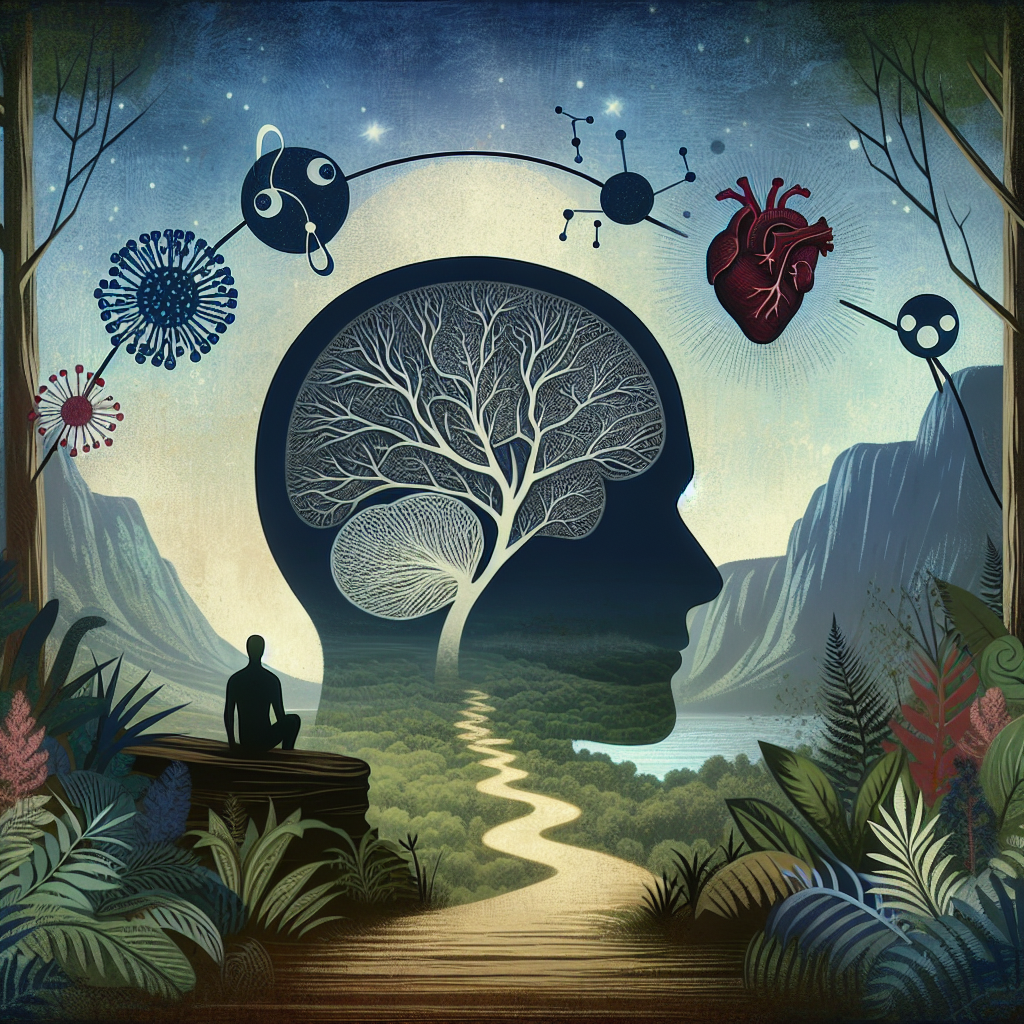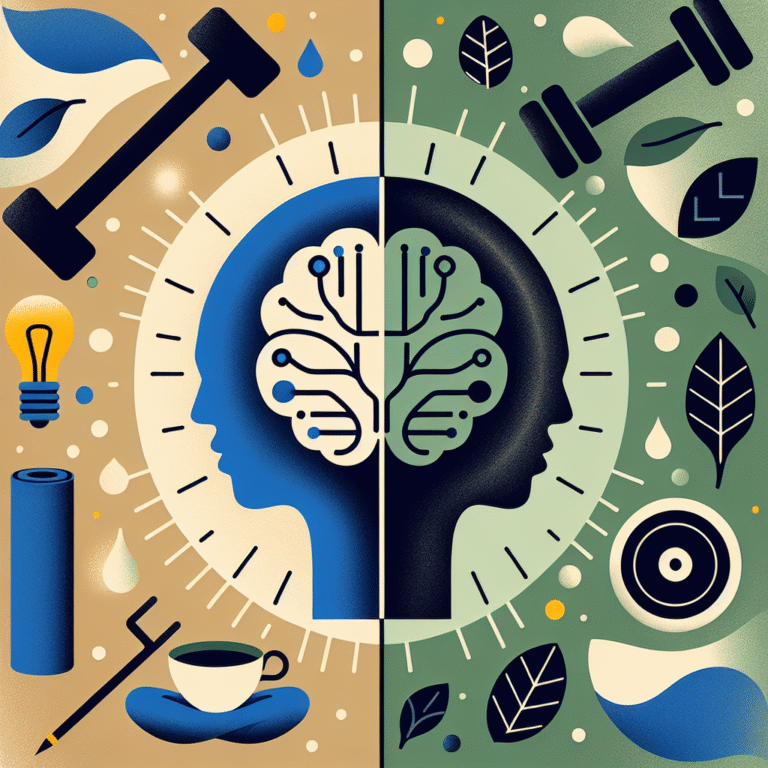
Introduction: Unveiling the Connection
In a world teeming with medical breakthroughs and advanced diagnostics, we often overlook a vital aspect of health: the profound interplay between our minds and bodies. What if the key to understanding many physical ailments lies not solely in biological mechanisms but deeply within our psychological states? "Beyond the Diagnosis: Exploring the Psychological Roots of Physical Illness" invites you to embark on a transformative journey that could change how we perceive health and wellness forever.
This article aims to delve into the intricate relationship between our emotional landscape and physical predicament. The truths we uncover may not only empower you to take charge of your health but also inspire a profound shift in how we address illness in a holistic manner.
Understanding the Mind-Body Connection
The Basis of Psychosomatic Medicine
Psychosomatic medicine posits that emotional and psychological factors play a crucial role in the manifestation of physical illnesses. Research indicates that stress, anxiety, and unresolved emotional conflicts can trigger or exacerbate physical conditions such as migraines, irritable bowel syndrome, and autoimmune disorders.
Key Insight: The field acknowledges that managing psychological well-being can be an essential component of treating physical illnesses.
The Science Behind the Connection
Numerous studies underscore the connection between mind and body. Stress, for instance, can lead to inflammation, which is implicated in various chronic diseases. According to the American Psychological Association, chronic stress can elevate cortisol levels, contributing to conditions like hypertension and even cardiovascular diseases.
| Psychological Factors | Physical Illnesses |
|---|---|
| Chronic Stress | Hypertension |
| Anxiety | Gastrointestinal Disorders |
| Depression | Autoimmune Diseases |
| Trauma | Chronic Pain Syndromes |
| Unresolved Grief | Cardiovascular Conditions |
The Role of Emotions in Physical Health
The Impact of Stress on the Body
Stress isn’t just a mental burden; it reflects on our physical health. Individuals working in high-stress environments often report a higher incidence of various physical ailments. A classic case study involved an accounting firm known for its demanding workload. Several employees experienced heightened anxiety, leading to a spike in stress-related illnesses such as high blood pressure and migraines.
Analysis: This reinforces the notion that a high-stress lifestyle can manifest in very tangible, harmful ways.
The Illness-Emotion Link: Case Studies
Case Study 1: The Power of Unresolved Grief
In a poignant case, a 45-year-old woman named Sarah battled chronic headaches and fatigue for years. Upon exploration, it was revealed that Sarah had never processed the loss of her mother many years prior. As she engaged in therapy to address her grief, her physical symptoms significantly diminished.
Relevance: This illustrates how unresolved emotions can contribute to physical health issues, emphasizing the importance of mental health interventions.
Case Study 2: Anxiety and Digestive Disorders
James, a 34-year-old professional, suffered from irritable bowel syndrome (IBS). After much trial and error with medication, he began cognitive-behavioral therapy (CBT) for his anxiety. Interestingly, his IBS symptoms improved dramatically as his anxiety decreased.
Analysis: James’s experience underscores the relevance of psychosocial therapies in treating physical conditions.
The Holistic Approach: Integrating Mind and Body Treatments
Current Treatment Modalities
The increasing acknowledgment of the mind-body connection has given rise to various integrative treatment modalities. Incorporating psychological therapies alongside conventional medicine can yield profound benefits. Here are some approaches:
Cognitive Behavioral Therapy (CBT): Particularly effective in treating anxiety and stress-related disorders, this therapy helps change negative thought patterns that can lead to physical symptoms.
Mindfulness and Meditation: Research indicates that mindfulness practices can significantly reduce stress responses and improve mental health, which in turn may alleviate physical disorders.
- Biofeedback: This technique teaches patients to control physiological responses, such as heart rate and muscle tension, which can play a role in managing stress-related illnesses.
The Future of Healing: Embracing a Holistic Paradigm
As healthcare continues to evolve, it is crucial for health practitioners to consider both the mind and body in treatment. Movements advocating for "whole-person" care are gaining momentum, integrating psychological support into physical health treatments more than ever before.
The Expanding Role of Healthcare Providers
Training for the Future
The need for healthcare providers to understand the psychological roots of physical illness is becoming increasingly evident. Medical education is gradually shifting towards a more integrated approach, incorporating training on mental health into curricula.
Collaborative Care Models
Collaborative care models that involve psychologists, physical therapists, and medical doctors are becoming essential in treating complex health issues. These models pave the way for a more comprehensive understanding of how mental health influences physical well-being.
Conclusion: Reimagining Health and Wellness
As we conclude our exploration "Beyond the Diagnosis: Exploring the Psychological Roots of Physical Illness," it becomes evident that acknowledging the mind’s role in our physical health is not merely an option; it is an essential component of effective care. Embracing this interconnectedness allows for a richer, more nuanced understanding of illness, paving the way for more productive treatment strategies.
Moving forward, let’s aim to foster environments where mental and physical health coexist harmoniously, fueling a paradigm shift in how we approach health.
FAQs
1. What exactly is psychosomatic medicine?
Psychosomatic medicine emphasizes the connection between psychological factors and physical health, suggesting that emotional and psychological states can significantly affect bodily functions.
2. How can stress impact physical health?
Chronic stress can lead to hormonal imbalances, especially elevated cortisol levels, which have been linked to numerous health issues, including cardiovascular diseases and gastrointestinal disorders.
3. Can mental health treatment help physical symptoms?
Absolutely! Many case studies highlight instances where addressing mental health concerns significantly alleviates physical symptoms, demonstrating the interconnected nature of mind and body.
4. What types of therapies are recommended for addressing the psychological roots of illness?
Cognitive Behavioral Therapy (CBT), mindfulness training, and biofeedback are among the most effective therapies for linking psychological treatment to physical health improvement.
5. How can I begin to explore the psychological roots of my physical illness?
Start by reflecting on any emotional challenges you may be facing. Consulting with a mental health professional can also provide valuable insights, helping you explore these connections effectively.
By considering the psychological aspect of physical illnesses, we empower ourselves to take comprehensive steps toward healing—truly going "Beyond the Diagnosis."
















